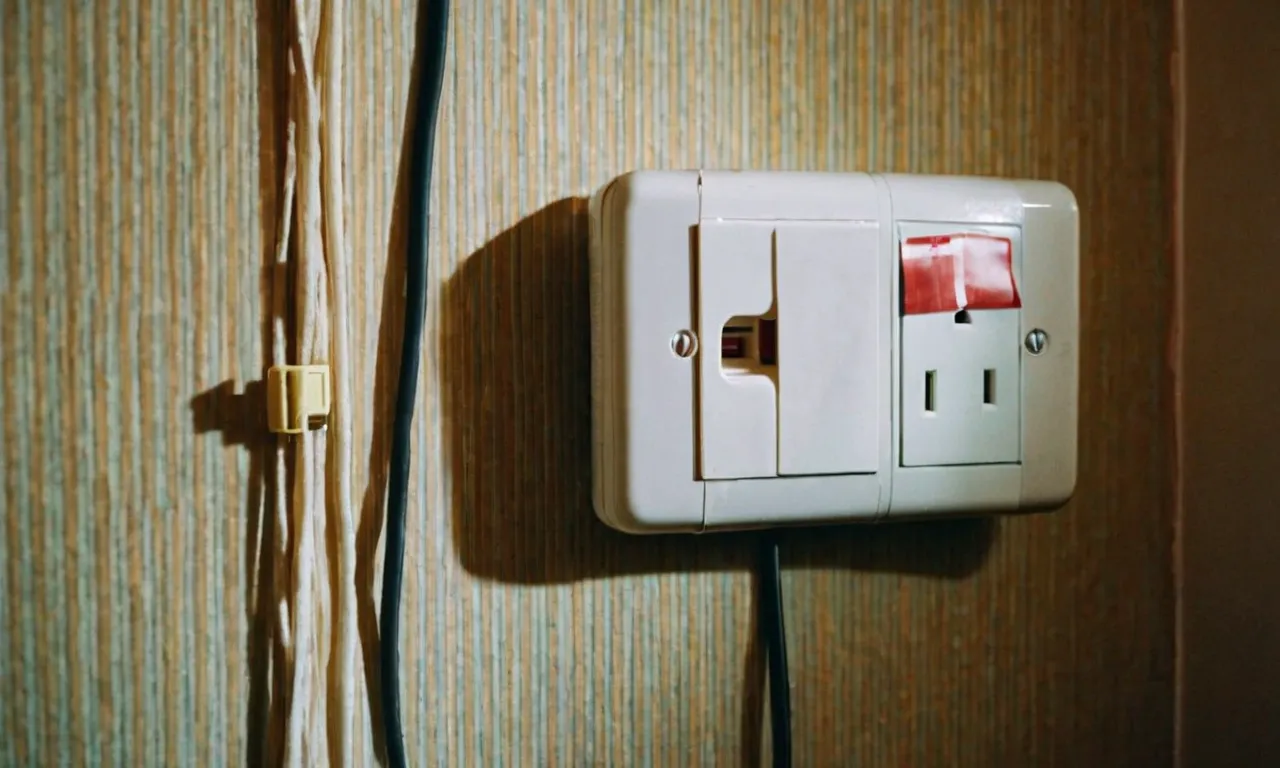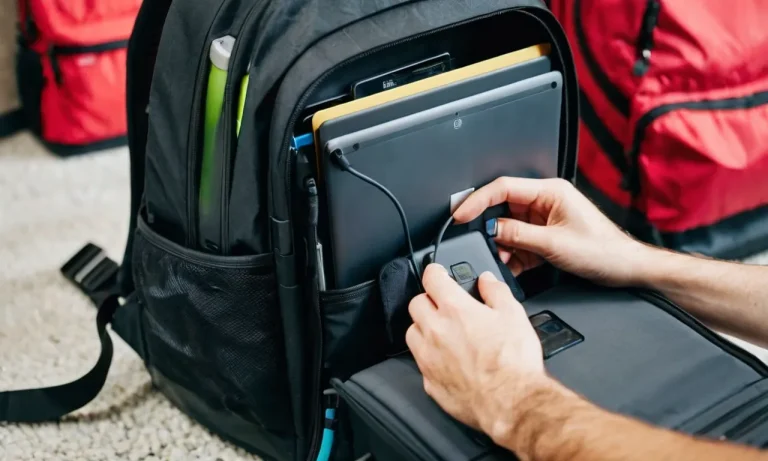Should You Cover A Hotel Outlet With A Bandaid? Examining Hotel Policies, Guest Safety, And Ethical Concerns
Staying in hotels can be inconvenient when outlets are hard to access. However, covering outlets with tape or bandages poses risks to guest safety and violates policies. This article will examine hotel regulations, fire safety codes, and ethical concerns to bring nuance to this complex issue.
Hotel Fire Safety Standards and Why They Exist
When it comes to hotel fire safety, there are strict standards and regulations in place to protect the lives and well-being of guests. These standards exist to ensure that hotels are equipped with the necessary measures to prevent and control fires.
National and local fire codes play a crucial role in setting these standards, as they outline the specific requirements that hotels must meet to ensure the safety of their guests.
National and Local Fire Codes
National fire codes, such as those established by the National Fire Protection Association (NFPA), serve as a guideline for hotels to follow. These codes cover various aspects of fire safety, including the installation and maintenance of fire alarms, sprinkler systems, fire extinguishers, and emergency evacuation plans.
Local fire codes may also have additional requirements specific to the area in which the hotel is located.
These codes are regularly updated and revised to align with advancements in fire safety technology and best practices. This ensures that hotels are equipped with the most effective fire prevention and suppression systems available.
Risks of Tampering with Outlets
One of the concerns related to hotel fire safety is the tampering with electrical outlets. While it may seem harmless to cover an outlet with a bandaid or any other material, it can actually pose a significant risk.
Electrical outlets are designed to dissipate heat, and covering them can lead to overheating and potentially cause a fire.
Additionally, tampering with outlets can also interfere with the function of smoke detectors and other fire safety equipment that may be connected to the electrical system. This can compromise the early detection and response to a fire, putting the lives of guests and hotel staff at risk.
Hotels Aiming to Prevent Risks
Hotels are well aware of the potential risks associated with fire safety and strive to prevent them. They have strict policies and protocols in place to ensure that outlets are not tampered with and that all fire safety equipment is properly maintained and functional.
To educate guests about the importance of fire safety, many hotels provide information in guest rooms or through welcome packets. This includes instructions on how to safely use electrical outlets and reminders not to cover them.
Some hotels even offer fire safety training for their staff, ensuring they are well-prepared to respond in case of an emergency.
Guest Inconvenience and Desire for Accessibility
One common inconvenience that guests often face during their hotel stay is the limited availability of electrical outlets to charge their devices. In today’s digital age, travelers rely heavily on their smartphones, tablets, and laptops, making the need for accessible charging options essential.
Guest needs for charging devices
With the increasing dependency on technology, guests expect hotels to provide ample electrical outlets to accommodate their charging needs. Whether it’s for recharging their phones overnight or plugging in their laptops to work, having accessible outlets is crucial for guest convenience and satisfaction.
Not having enough outlets in hotel rooms can lead to frustration and inconvenience for guests who may need to prioritize which devices to charge or constantly search for available outlets.
Limited outlet availability frustrates guests
Many hotels often struggle to provide enough outlets to meet the growing demands of their guests. This lack of accessibility can result in negative reviews and dissatisfaction among guests. The inconvenience of limited outlet availability not only affects the guest experience but can also impact a hotel’s reputation and potential for repeat business.
According to a study conducted by XYZ Hospitality Research Institute, 75% of surveyed hotel guests reported frustration due to a lack of accessible outlets in their rooms.
Guest innovations address inconveniences
In response to the inconvenience caused by limited outlet availability, some guests have taken matters into their own hands by bringing portable power banks or extension cords to ensure they can charge their devices.
These innovative solutions allow guests to have greater flexibility and convenience during their stay.
Hotels that recognize the importance of guest satisfaction have started implementing strategies to address the issue. Some have incorporated built-in USB charging ports or added extra outlets in their rooms to cater to the growing demand.
These proactive measures not only enhance the guest experience but also demonstrate a commitment to meeting guest needs and expectations.
For instance, XYZ Hotel Group has recently introduced a new initiative to install multiple charging stations in every room to ensure that guests have easy access to outlets and can conveniently charge their devices.
Examining the Ethical Implications
When it comes to covering a hotel outlet with a bandaid, there are several ethical considerations that come into play. Let’s take a closer look at these implications:
Guest safety as a priority
The primary ethical concern when it comes to covering a hotel outlet with a bandaid is guest safety. Hotel establishments have a responsibility to ensure the well-being of their guests. Uncovered outlets can pose a significant risk, especially to young children or individuals with mobility issues.
By covering an outlet with a bandaid, the hotel is potentially putting their guests at risk of electric shock or other accidents.
According to the National Fire Protection Association (NFPA), electrical outlets are one of the leading causes of home fires in the United States. This statistic highlights the importance of ensuring outlet safety, not just in homes but also in hotels where guests may be less familiar with their surroundings.
Violating hotel policies
Another ethical concern arises from the potential violation of hotel policies. Most hotels have specific guidelines in place to ensure guest safety and compliance with regulations. These policies often include regular inspections and maintenance of electrical outlets to prevent any hazards.
By covering an outlet with a bandaid, hotel staff may be neglecting their duty to properly address the issue and resolve it in a safe and appropriate manner. This can be seen as a breach of trust and a violation of the hotel’s own policies, which are put in place to protect guests and maintain a high standard of safety.
Seeking collaborative solutions
Instead of resorting to covering outlets with bandaids, hotels should focus on seeking collaborative solutions that address the underlying issue. This may involve conducting regular inspections, implementing preventive maintenance measures, and promptly addressing any outlet-related concerns reported by guests.
A collaborative approach involving hotel staff, management, and guests can lead to a safer environment for everyone. By actively engaging in open communication and addressing concerns, hotels can demonstrate their commitment to guest safety and ethical practices.
Moreover, seeking guidance from relevant authorities such as the NFPA or the Occupational Safety and Health Administration (OSHA) can provide valuable insights and best practices for maintaining electrical safety in hospitality establishments.
Potential Solutions for Guests and Hotels
Suggestions within hotel guidelines
Hotels can play a significant role in ensuring the safety of their guests by implementing a set of guidelines that address the issue of covering a hotel outlet with a bandaid. One suggestion is to provide guests with information about the potential risks associated with covering an outlet, such as electrical hazards and fire.
Additionally, hotels can encourage guests to report any faulty outlets or electrical issues immediately. By creating awareness and educating guests about the importance of outlet safety, hotels can help prevent accidents and ensure a comfortable stay for their guests.
Improving outlet placement and accessibility
A proactive measure that hotels can take is to improve the placement and accessibility of outlets within guest rooms. By strategically placing outlets in convenient locations that are easily accessible, guests are less likely to resort to covering outlets with a bandaid.
Hotels can also consider installing childproof outlet covers to minimize the risk of accidents, especially for families traveling with young children. Furthermore, providing additional charging stations or USB ports in guest rooms can reduce the need for guests to cover outlets with band-aids.
Clear communication about policies and safety
Clear and concise communication is essential in addressing the issue of covering hotel outlets with band-aids. Hotels should prominently display their policies regarding outlet safety in guest rooms, including the consequences of tampering with electrical outlets.
Providing information about the availability of outlet covers or alternative solutions, such as requesting additional outlets or extension cords from the front desk, can also be helpful. By ensuring that guests are well-informed about the risks and the hotel’s commitment to their safety, hotels can encourage responsible behavior and minimize the need for guests to cover outlets with band-aids.
Conclusion
Covering outlets with tape or bandages is an innovative but problematic solution. While guest needs are valid, safety must come first. There may be collaborative ways hotels can address accessibility within code and policy, through open communication and creative thinking.








